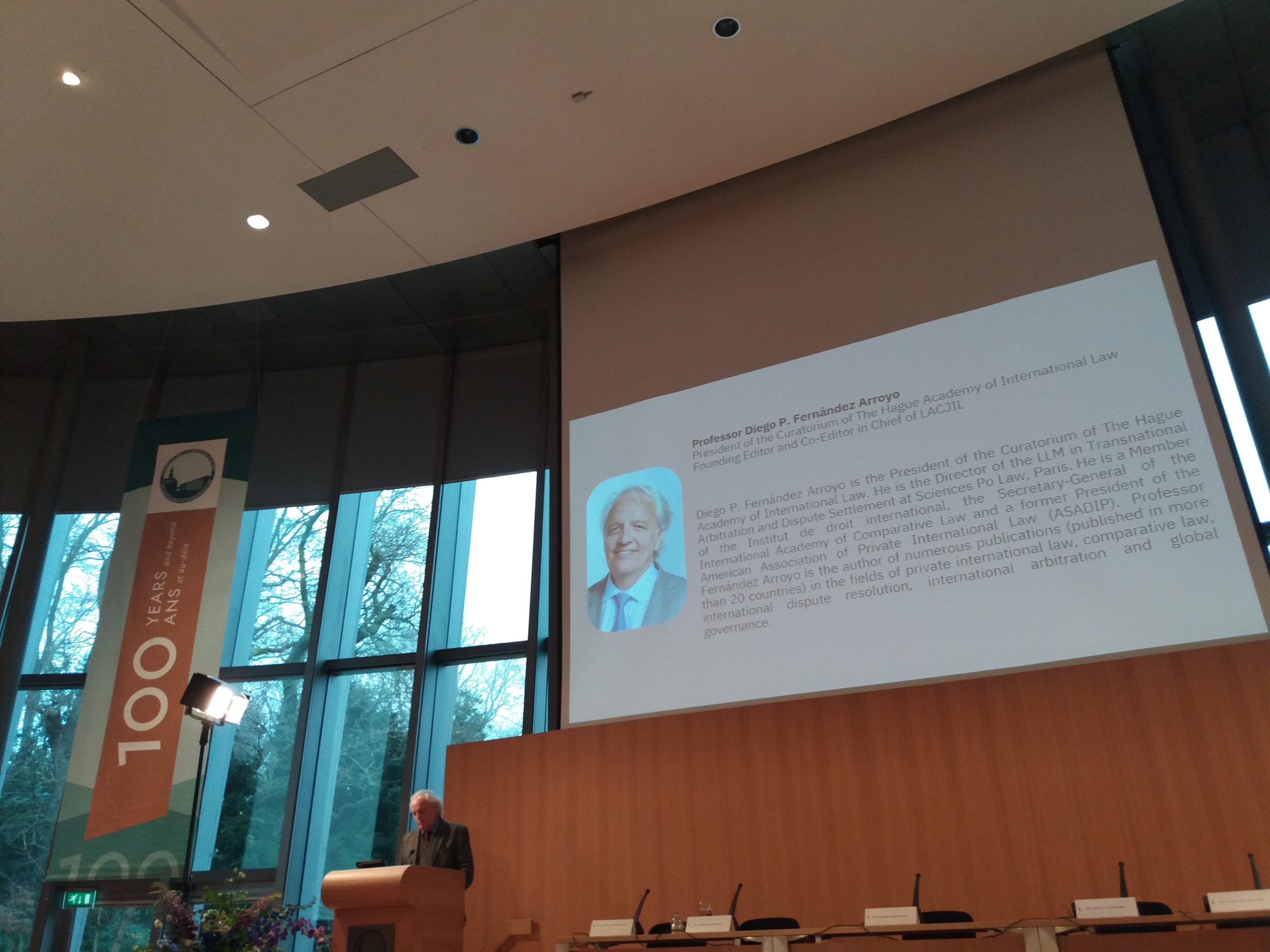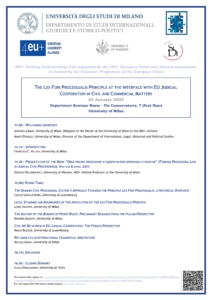Views
Reappreciating the Composite Approach with Anupam Mittal v Westbridge II
Written by: Aditya Singh, BA.LL.B. (Hons) student at the National Law School of India University(NLSIU), Bengaluru and line editor at the National Law School Business Law Review (NLSBLR)
I. INTRODUCTION
The debate surrounding the composite approach i.e., the approach of accommodating the application of both the law applicable to the substantive contract and the Lex Fori to the arbitration clause has recently resurfaced with Anupam Mittal v Westbridge Ventures II (“Westbridge”). In this case, the Singapore Court of Appeal paved way for application of both the law governing substantive contract and the Lex Fori to determine the arbitrability of the concerned oppression and mismanagement dispute. The same was based on principle of comity, past precedents and s 11 of the International Arbitration Act. The text of s 11 (governing arbitrability) does not specify and hence limit the law determining public policy to Lex Fori. In any event, the composite approach regardless of any provision, majorly stems from basic contractual interpretation that extends the law governing substantive contract to the arbitration clause unless the presumption is rebuttable. For instance, in the instant case, the dispute would have been rendered in-arbitrable with the application of Indian law (law governing substantive contract) and hence the Singapore law was inferred to be the implied choice.[1] Read more
Measure twice, cut once: Dutch case Presta v VLEP on choice of law in employment contracts
Presta v VLEP (23 june 2023) illustrates the application of the CEJU’s Gruber Logistics (Case C-152/20, 15 July 2021) by the Dutch Supreme Court. In order to determine the law applicable to an individual employment contract under article 8 Rome I, one must compare the level of protection that would have existed in the absence of a choice of law (in this case, Dutch law) with the level of protection offered by the law chosen by the parties in the contract (in this case, the laws of Luxembourg), thereafter, the law of the country offering the highest level of employee protection should be applied.
U.S. Supreme Court Renders Personal Jurisdiction Decision
This post is by Maggie Gardner, a professor of law at Cornell Law School. It is cross-posted at Transnational Litigation Blog.
The U.S. Supreme Court yesterday upheld the constitutionality of Pennsylvania’s corporate registration statute, even though it requires out-of-state corporations registering to do business within the state to consent to all-purpose (general) personal jurisdiction. The result in Mallory v. Norfolk Southern Railway Co. re-opens the door to suing foreign companies in U.S. courts over disputes that arise in other countries. It may also have significant repercussions for personal jurisdiction doctrine more broadly. Read more
News
Out now: Buxbaum, “Extraterritoriality in Comparative Perspective” (Ius Comparatum)
In an increasingly interconnected world, the application of laws by States beyond their territorial borders is an everyday reality. Yet, almost a century after the (still) leading findings by the PCIJ in the Case of the S.S. “Lotus”, the details of the concept of “extraterritoriality” remain elusive, and one can easily get lost in the multitude of national practices, ranging from “presumptions against extraterritoriality” to be found mostly in federal systems (mostly for sub-units) to “effects doctrines” and the like in certain areas of law such as e.g. (early) in Germany, (later) in the EU’s competition law and today many other jurisdictions, in particular in Asia.
Given this complexity, this latest publication of the Ius Comparatum Series on “Extraterritoriality in Comparative Perspective” edited by Hannah L. Buxbaum offers a great deal of valuable guidance and insights. Featuring the reports from the most recent IACL/AIDC General Congress in Asunción, the volume provides the reader with unique insights by renowned legal scholars into the practices of 14 national jurisdictions (inter alia China, Germany, Japan, Korea, UK, U.S.) and the the European Union (EU). As is explained in the preface to the book:
Much of the vast scholarly literature on extraterritoriality approaches the topic from the outside in, assessing the extraterritorial projection of state law from the perspective of international law and the constraints it places on state authority. The goal of this project is to approach the topic from the inside out. Considering a range of legal systems, the authors investigate the geographic scope that states claim for their own laws, and the mechanisms by which states translate and locally implement principles of international jurisdictional law.
The Latin American and Caribbean Journal of International Law (LACJIL) has been launched

Today the Latin American and Caribbean Journal of International Law (LACJIL) was launched at the auditorium of the Hague Academy of the Peace Palace. Among the speakers were Prof. Diego Fernández Arroyo, president of the curatorium of the Hague Academy, and H.E. Leonardo Nemer Caldeira Brant, judge of the International Court of Justice. In addition, a very interesting panel was moderated by the Ambassador of Guatemala to the Kingdom of the Netherlands H.E. Ana Cristina Rodríguez Pineda. The panel was composed of the judge of the International Criminal Court H.E Althea Alexis-Windsor, the Ambassador of Colombia to the Kingdom of the Netherlands H.E. Carolina Olarte Bácares, the Ambassador of Argentina to the Kingdom of the Netherlands H.E. Mario J. A. Oyarzábal and the president of ASADIP Prof. Verónica Ruiz Abou-Nigm. The purpose of the panel was to discuss the recent legal developments in Latin America and the Caribbean, which included the ASADIP principles on transnational access to Justice (TRANSJUS). Read more
Seminar on the Lex fori processualis principle – University of Milan, 24 January 2025
 The seminar The Lex fori processualis principle at the interface with EU judicial cooperation in civil and commercial matters will take place on 24 January 2025 at the University of Milan. The seminar is organized as part of the 4EU+ Visiting Professorships Call, supported by the 4EU+ European University Alliance and co-funded by the Erasmus+ Programme of the European Union.
The seminar The Lex fori processualis principle at the interface with EU judicial cooperation in civil and commercial matters will take place on 24 January 2025 at the University of Milan. The seminar is organized as part of the 4EU+ Visiting Professorships Call, supported by the 4EU+ European University Alliance and co-funded by the Erasmus+ Programme of the European Union.
Hosted by the Department of International, Legal, Historical, and Political Studies of the University of Milan, the seminar will open with welcoming addresses (Antonella Baldi and Marco Pedrazzi) and an introduction (Francesca C. Villata). Bartosz Wolodkiewicz (University of Warsaw), currently a 4EU+ Visiting Professor at the University of Milan, will present the findings of his new book on foreign procedural law in civil judicial proceedings (Obce prawo procesowe w sadowym postepowaniu cywilnym, Wolters Kluwer 2024). Following this, a round table with international scholars will explore various aspects of the lex fori processualis principle, covering topics such as historical perspectives (Carlos Santaló Goris), legal standing (Lenka Válková), burden of proof (Martino Zulberti), ne bis in idem in EU judicial cooperation (Marco Buzzoni), and res judicata in international commercial arbitration (Michele Grassi). The seminar will conclude with a discussion and closing remarks by Elena D’Alessandro (University of Turin).
For more information on the 4EU+ Alliance, follow:
Facebook: 4EUplusAlliance
Instagram: 4euplus_alliance
LinkedIn: 4EUplus
#4EUplusAlliance #EuropeanUniversities #GrowingInMotion
With thanks for the tip-off to Dr Lenka Válková, University of Milan




